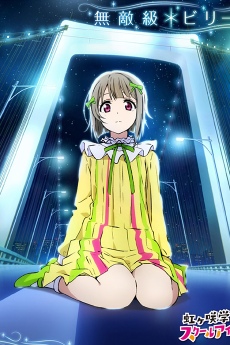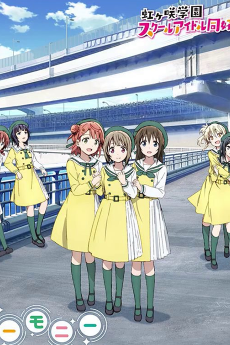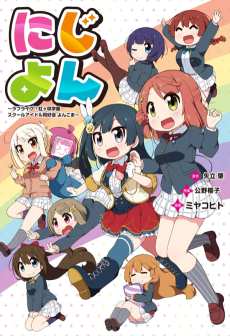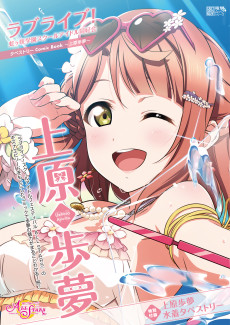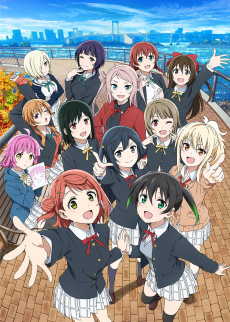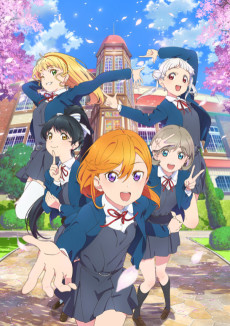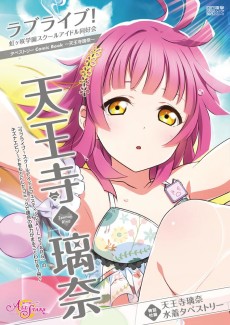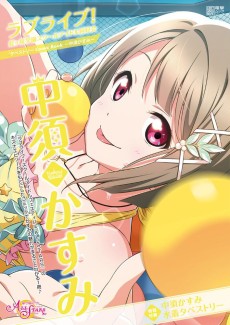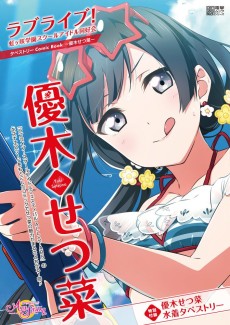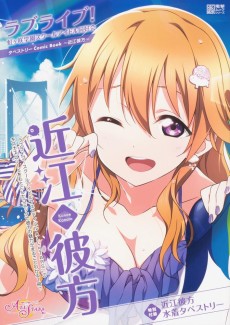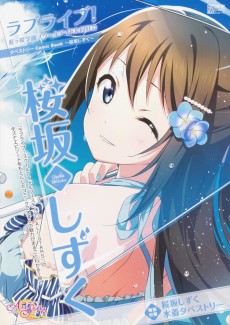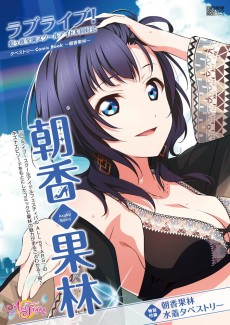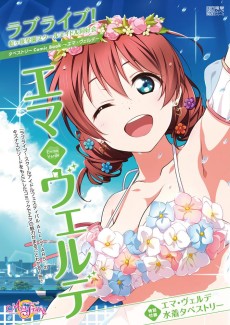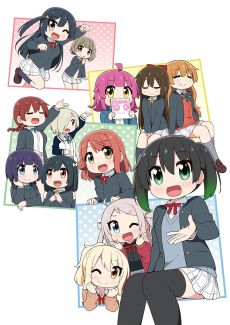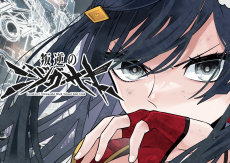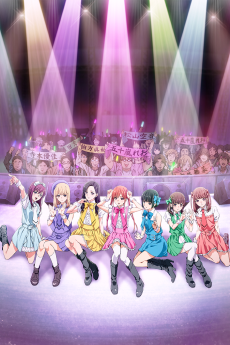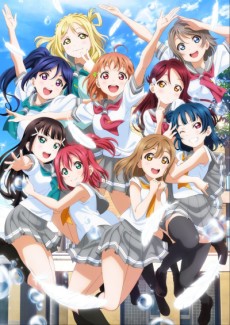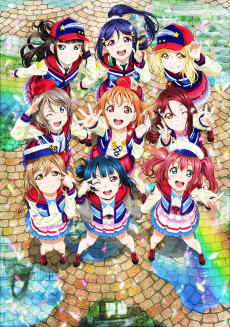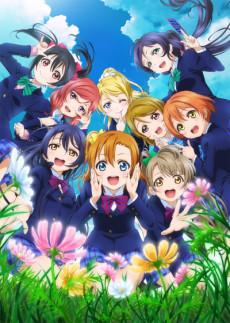LOVE LIVE! NIJIGASAKI GAKUEN SCHOOL IDOL DOUKOUKAI
STATUS
COMPLETE
EPISODES
13
RELEASE
December 26, 2020
LENGTH
24 min
DESCRIPTION
Nijigasaki High School is known for their diverse subjects and the freedom they give to students. Second-year student Yuu Takasaki has been turned on to the charms of school idols, so she knocks on the door of the School Idol Club with her friend, Ayumu Uehara. Sometimes friends, sometimes rivals, the members of this club each contribute their own thoughts and motivations to the group.
(Source: Funimation)
CAST
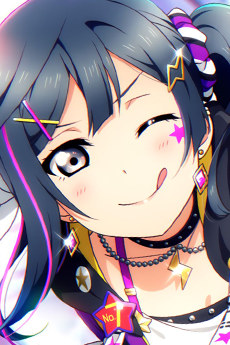
Setsuna Yuki
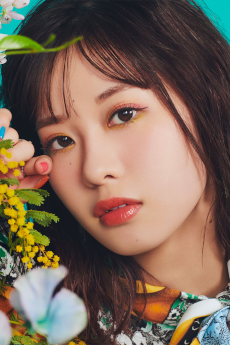
Tomori Kusunoki
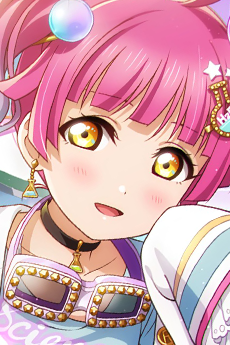
Rina Tennouji

Chiemi Tanaka
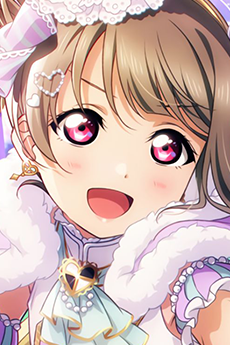
Kasumi Nakasu
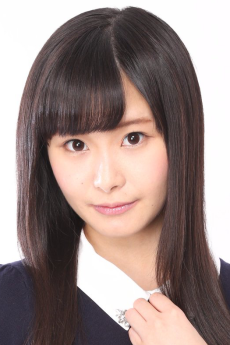
Mayu Sagara
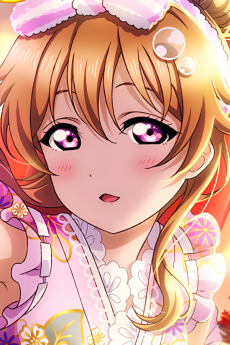
Kanata Konoe
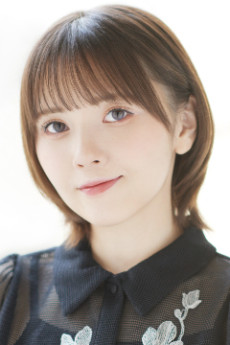
Akari Kitou
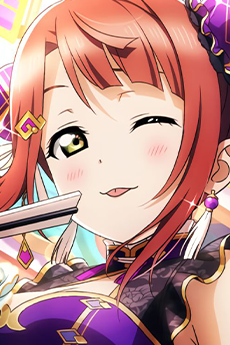
Ayumu Uehara
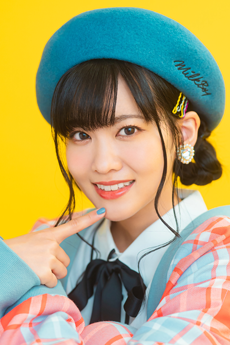
Aguri Onishi
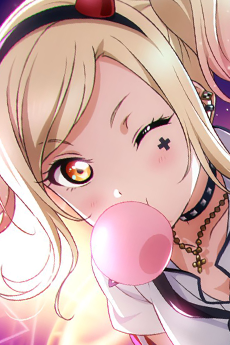
Ai Miyashita

Natsumi Murakami
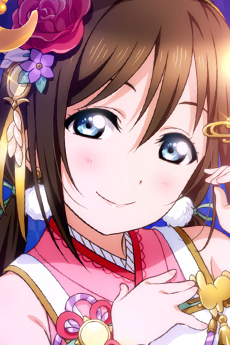
Shizuku Ousaka
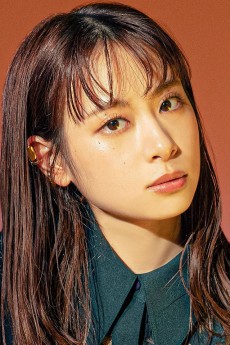
Kaori Maeda
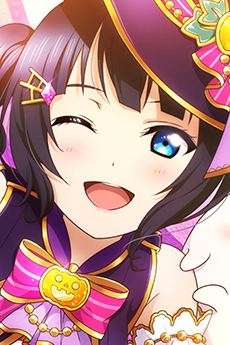
Karin Asaka
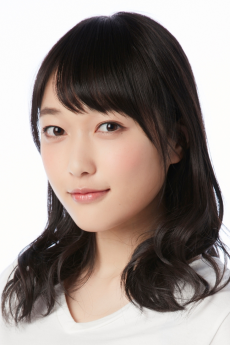
Miyu Kubota
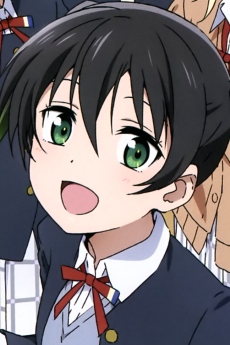
Yuu Takasaki
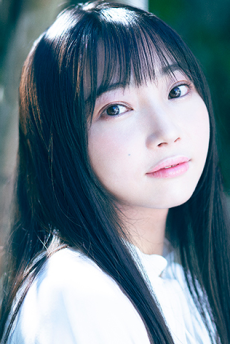
Hinaki Yano
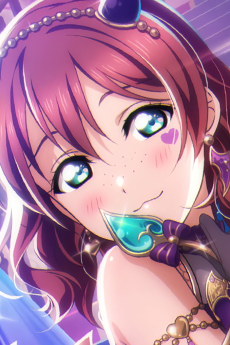
Emma Verde

Maria Sashide
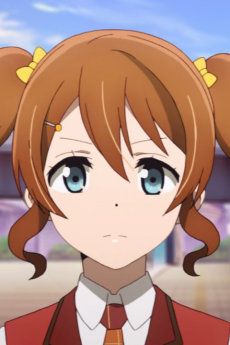
Haruka Konoe
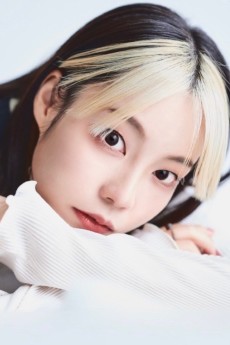
Kaede Hondo

Himeno Ayanokouji

Natsumi Hioka
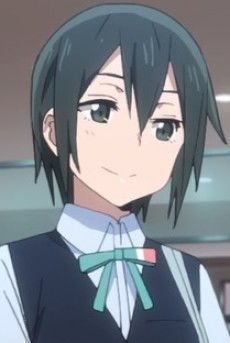
Engeki-bu Kaichou

Momoyo Koyama

Fuku Seitokaichou

Riho Sugiyama

Hanpen

Anna Mugiho
EPISODES
Dubbed
RELATED TO LOVE LIVE! NIJIGASAKI GAKUEN SCHOOL IDOL DOUKOUKAI
REVIEWS

TGK94
80/100Nijigaku takes Love Live! down an exciting new character-focused path, but it makes a few missteps along the way.Continue on AniListNote: Love Live! Nijigasaki Gakuen School Idol Doukoukai is a real mouthful of a title, so I refer to it as Nijigaku in this review.
Nijigaku is a new path through familiar territory. If you’ve seen any other entry in the Love Live! series, or indeed, any idol anime at all, your preliminary guesses regarding what this show will be like are probably spot on. There is a group of high school girls, they each want to be the very best school idols that they can be, and they all have certain setbacks which they must overcome to make this dream come true. It’s a simple setup, but told well, as it has been in past Love Live! entries, it can serve as the base for some great anime.
Where Nijigaku differs from its predecessors is mainly in how little it does to build on this base. Idol shows are not known for their complex narratives, but even in the straightforward world of its genre, Nijigaku’s overall plot is remarkably thin. It begins with some mild conflict caused by the disbandment of the School Idol Club, but once this is resolved, the show drops almost all pretensions of having any overarching narrative whatsoever. Now, this probably sounds like a pretty damning criticism, but don’t fret quite yet, because while Nijigaku may have abandoned a central plot, it does still have a story to tell. “How is that possible?” you might ask. Simple: rather than following a grand narrative, Nijigaku shifts its focus to a series of character-based mini-narratives. Each of these mini-narratives span exactly one episode and each ends with a performance (i.e., a song and dance routine) by the relevant character. In other words—and this is incredibly important—rather than telling a continuous story, Nijigaku is largely an assortment of episodic character arcs. Whether you think “episodic character arcs” sounds like a good idea or a terrible one will probably play a central role in determining how much you like the show. And what did I think? Well, that’s what the rest of this review is for...
First thing’s first, the success of this character vignette focused setup hinges heavily upon one simple question: are these characters worth telling stories about? Thankfully, Nijigaku manages to answer this question with a more or less resounding “yes!” Granted, this is an idol anime, so none of these characters plunge particularly far into the depths of the human psyche—and that’s okay! To put it rather clinically, the goal in a show like this is to have characters that are complex enough to feel novel, but simple enough that a satisfying arc about them fits into one episode. For a show with ten (10!!) main characters and only thirteen episodes, Nijigaku does an astonishingly good job of crafting these kinds of simple but effective characters. Ayamu and Yu, in particular, are standout examples of how good Nijigaku's character writing can be. At the start of the series they are a simple case of "aspiring idol + friend who supports her," but by the end their relationship had grown to be complex and compelling in a way that I absolutely did not expect coming into the show. I will say, though, if you’ve seen a lot of idol anime, or even a lot of anime in general, you will probably recognize the general form of many of the faces here. We have the Socially Awkward Tech Genius (Rina), the Friendly Foreigner (Emma), the Sleepy Big Sister (Kanata), and my personal favorite, the Cute Gremlin (Kasumi), among others. But the point is, given the genre and length of the show, Nijigaku’s characters are as interesting as anyone could reasonably hope.

Kasumi demonstrates her Cute Gremlin powers.
Unfortunately, the storylines that surround these characters are not quite as successful. In fairness, some aspects of the narrative writing work well—the tone, for instance, wavers delicately between being touching and lighthearted without ever veering into sentimentality or silliness. The problem is this: because of its episodic narrative, episodes of Nijigaku tend to be structured in a very formulaic fashion. Specifically, in each episode, a character…
a) is revealed to have some problem which is holding them back from reaching their full potential as an idol...
b) overcomes this problem, often after remembering why they love school idols in the first place...
c) gives a performance which reflects their newly self-actualized perspective...
d) cedes the stage to the next character.It’s a pretty by-the-numbers approach to storytelling, and at its worst it is a little too transparent. Some of the after-credit scenes are particularly egregious in this regard: it can feel painfully artificial when one girl’s arc ends with another saying something to the effect of “all right, it’s my turn on the character development”. That being said, despite the simple form of the episodes, the inherent strength of the characters usually does carry through in the end. I found many of these girls’ stories at least a little bit compelling, and a few of the episodes even made me pretty emotional. When Nijigaku’s episodic narratives do work, it’s usually thanks to three key factors. I’ve already mentioned the first two—simple but effective character writing, and a tone which balances being touching and lighthearted. The third factor, however, I’ve only touched on thus far, and it’s importance really cannot be overstated: the phenomenal performances which end each episode.
To get straight to the point, these episode-ending performances are the high point of Nijigaku. Moreover, they are the element which, to me, comes closest to fully vindicating the new character vignette approach to storytelling. To begin with, on a technical level, the dance sequences are consistently the best the series has seen. Historically, the Love Live! series has been rather notorious for the jarring use of computer graphics during its dance sequences, and while CG does make a return here, I am happy to report that it’s no longer jarring at all. Yes, you can still pretty easily tell which cuts are hand drawn and which cuts are CG, but no longer does the CG animation suffer from the lifeless, washed-out look it used to have. Partly this is due to improvements in lighting and framing, but in larger part I think it’s due to the transition to solo performances. The ugliest uses of CG in School Idol Project tended to be during group shots, and now that those are gone, the result is much prettier overall.

Yu is blown away (literally!) by an idol performance.
Of course, it helps that on a directorial level, Nijigaku’s performances are the most visually interesting the series has ever seen. Now that the girls are performing solo, the animation staff is free to incorporate more abstract and character specific visuals, which greatly increase the amount of variety on offer. But beyond that, the visuals are just… generally more creative. This is, admittedly, a hard point to justify without a slew of examples, but I hope it will suffice to link to Kanata’s performance and let its quality speak for itself. This is why I say that these performances are the element of Nijigaku which most fully vindicates the character focused approach: because the girls perform solo, a) the performances look better, b) there’s more of them, and c) they are more varied visually than ever before. Put simply, if you consider performances to be one of the main appeals of Love Live!, Nijigaku is an absolute dream come true.
So, what’s my overall impression of the new character-focused approach to storytelling? Well, I was mostly a supporter, but it came with enough problems that I would hesitate to call it a strict improvement on the approaches of the past Love Live! series. More than anything, Nijigaku feels like a series of tradeoffs. The focus on individual characters makes for more complete character arcs, but the overall plot is left feeling insubstantial as a result. The solo performances are consistently the best the series has ever seen, but the episodes that lead up to those performances can feel somewhat formulaic.
If I had to guess, I would wager that Nijigaku will end up being somewhat divisive among Love Live! fans. For those that valued the group dynamics and overall story of the previous entries of the series, it will probably be a minor disappointment, but for those that valued character development and musical performances, it will be viewed as easily the series’ peak. Whatever the case may be, ultimately it’s clear that after the rather mixed reception to Sunshine!, the Love Live! series needed some kind of shakeup, and this is a role which Nijigaku quite effectively fills. So, while it’s not without its problems, this show feels like a good omen for the future of the series. If Sunrise was willing to rethink the Love Live! formula enough to produce Nijigaku, then hopefully they’re also willing to make the necessary tweaks going forward to make an even better followup.
Thanks for reading! Here's a bonus unhinged Kasumi for making it to the end:


superp2222
95/100Nine Quirky Greek Goddesses - The EpitomeContinue on AniListNijigasaki was undoubtedly the most original and unique member of the Love Live franchise, for the first time, their idols don't perform as a group, but as nine individual Solo Idols, each shining with their own unique spark. It brings about the catalyst for originality that this series wasn't able to execute with its predecessor Sunshine, and it paves the way for the most original, well-rounded character development this series has seen so far.

Plot
As I mentioned earlier, I believe that Nijigasaki has the most well fleshed-out plot of all of the Love Live franchise so far. Why do I say this? Because it no longer clings to the past. Sunshine suffered a lack of originality because like its fanbase, the producers couldn't move on from the original Love Live, that is why Sunshine's plot revolved around Aqours trying to find their own individuality. However, here, there is no mention of previous groups, Nijigasaki starts from a completely clean slate and tries to establish their status from the ground up. They don't even attend Love Live, the namesake school idol competition. Instead, they create their own Festival, the School Idol Festival, as a celebration of the joys of Music through Idols. This unique premise immdiately screams to the audience that they are not like their predecessors—they are new.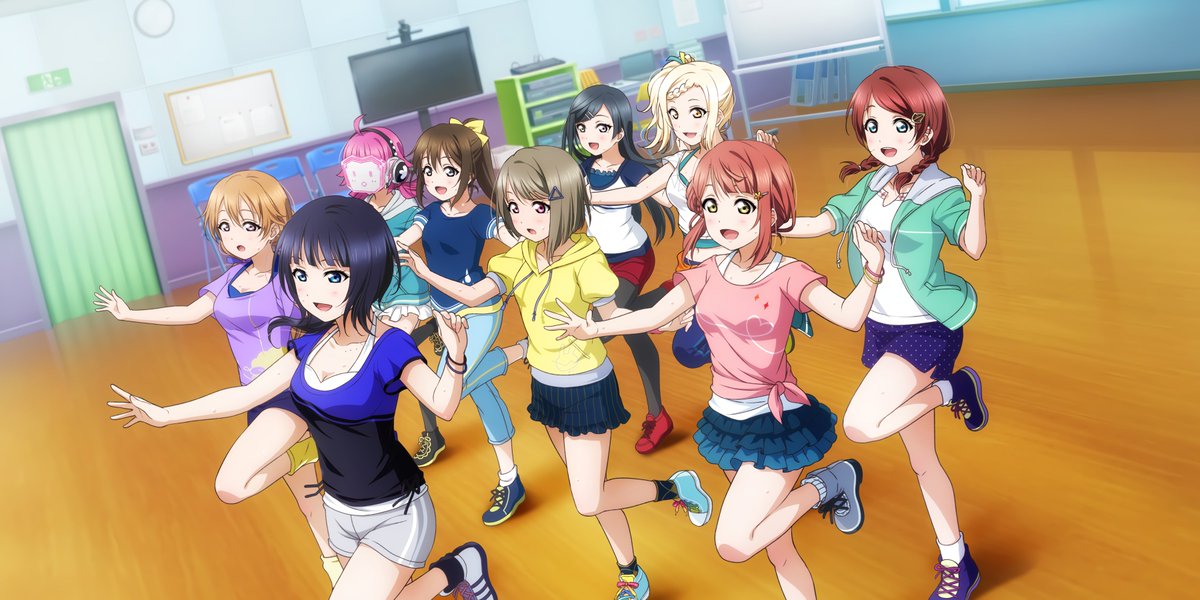
As for the actual progression of events itself, it takes on a different style because of the individuality of each idol. Nijigasaki's selling point is that they are unable to operate as a joint group because of their clashing personalities, that is why they operate as solo idols. We spend the first 9 episodes of the show seeing just why that is how this club operates, I'll be diving into more detail about the intricacies later, but with 9 episodes gone, all that's left for Nijigasaki to do was blend them together to see how they interact, right? Wrong, totally wrong. Instead of taking the predictable approach of melding the 9 solo idols, the anime instead decides to now cast its light on the protagonist Yuu. Who, since she isn't an idol, has been out of the spotlight this whole time. The show paints how the progression of these idols' personalities have caused a rift in Yuu and her childhood friend Ayumu, and graciously paints a clean and heartwarming resolution to this conflict. Just in time for the collection of all the personalities to amass in the highly anticipated School Idol Festival on the last episode. It created for a satisfying and well-felt end to the entire series, and only leaves the viewer yearning for more.

Characters
This iteration of Love Live, as I mentioned, has the most rounded out cast of characters I've ever seen. They are introduced in a manner such that players of the gacha/rhythm game School Idol Festival All Stars would instantly be able to insert into, but also in a manner so that newcomers to this series would also be able to instantly see their uniqueness. I'll go over them one-by-one.
While Yuu herself only received character development when her childhood friend Ayumu did, she's technically the insert persona of us, the player from All Stars, where this series originated. She's a catalyst for change, and since she's not an idol, its the best they can do.
As Yuu's childhood friend, Ayumu easily recieves the most development out of all of the idols, her personality paints her as this shy yet sweet cinnamon roll who relied on Yuu to lead her to her passion of School Idols, as Yuu gets more heavily involved in the Club, Ayumu goes through a metamorphosis, painting her new individuality while also a gratefulness of Yuu's help to her all this time. Her innocent personality combined with her reliance on Yuu makes for a character arc that tugs at your feels stronger than any character arc in the series.
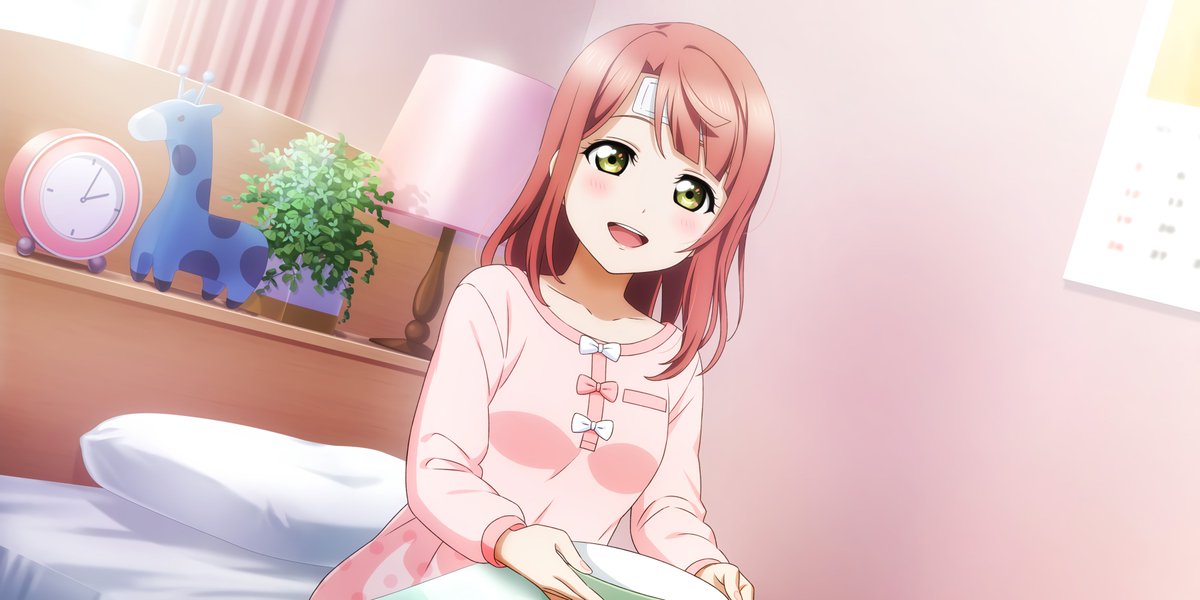
Kasumi remains, as I unfortunately must point out, a bit left out. Her character arc revolves around her and Yuu attempting to revive the defunct School Idol Club, while also illustrating Kasumi's goal of becoming the cutest school idol around. While her arc itself isn't that great, the style of her personality made her a second coming of the meme goddess Nico Yazawa herself and quickly placed her as the prime candidate for many of Love Live's running jokes, such as the infamous photobomb and her Kasumi box
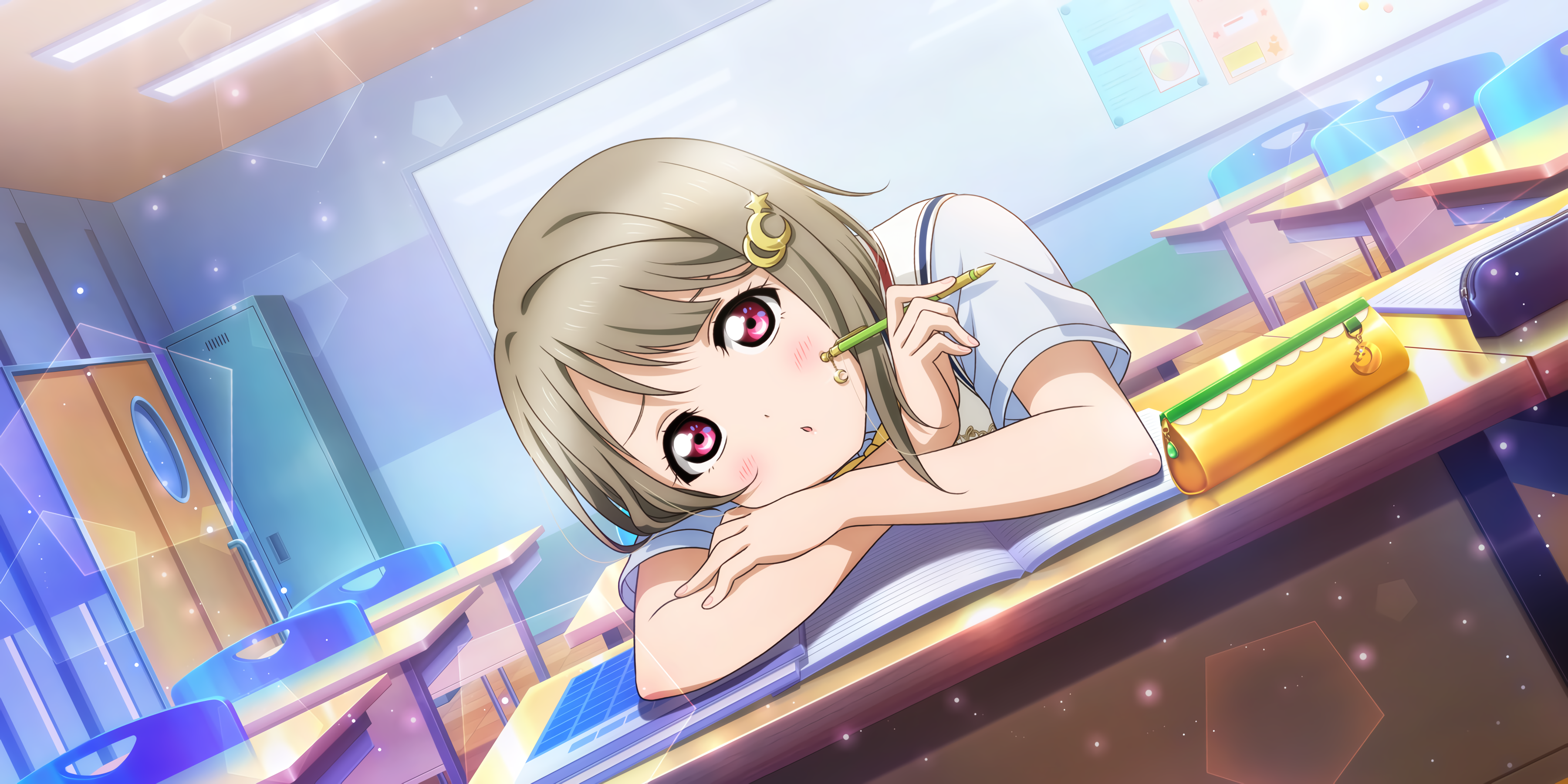
Setsuna's arc revolves her two conflicting identities within Nijigasaki, as the head of the Student Council Nana Nakagawa, and as the dominant school idol Setsuna Yuki. In her arc we see Yuu help her manage the conflicting personalities her two identities demand while also re-embracing her passion of singing as a school idol. Her insert song reflects this, as it is riddled with large jumps across entire vocal ranges. As a musician myself, I know that making a vocalist jump distances Setsuna jumped in Dive! was mostly taboo until the modern era of music, and even still is only cleanly executable by very profoundly talented singers. Which adds to her status as a well-established school idol.
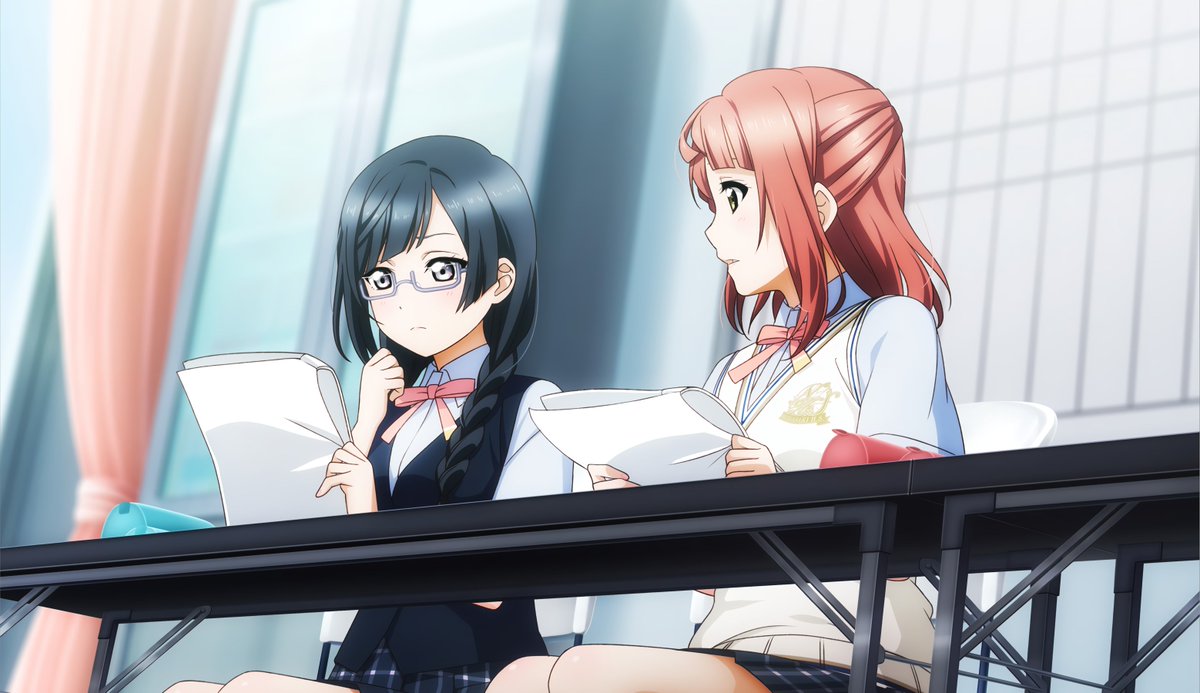
Ai's arc talks all about how she orbited the club as a helper from behind the scenes, there to try to get her friend Rina to become an Idol, but eventually fell a bit too close to the planet that is Idols. It paints a vivid picture of how she should try stuff for herself as well instead of always helping others for the sake of being a nice person.
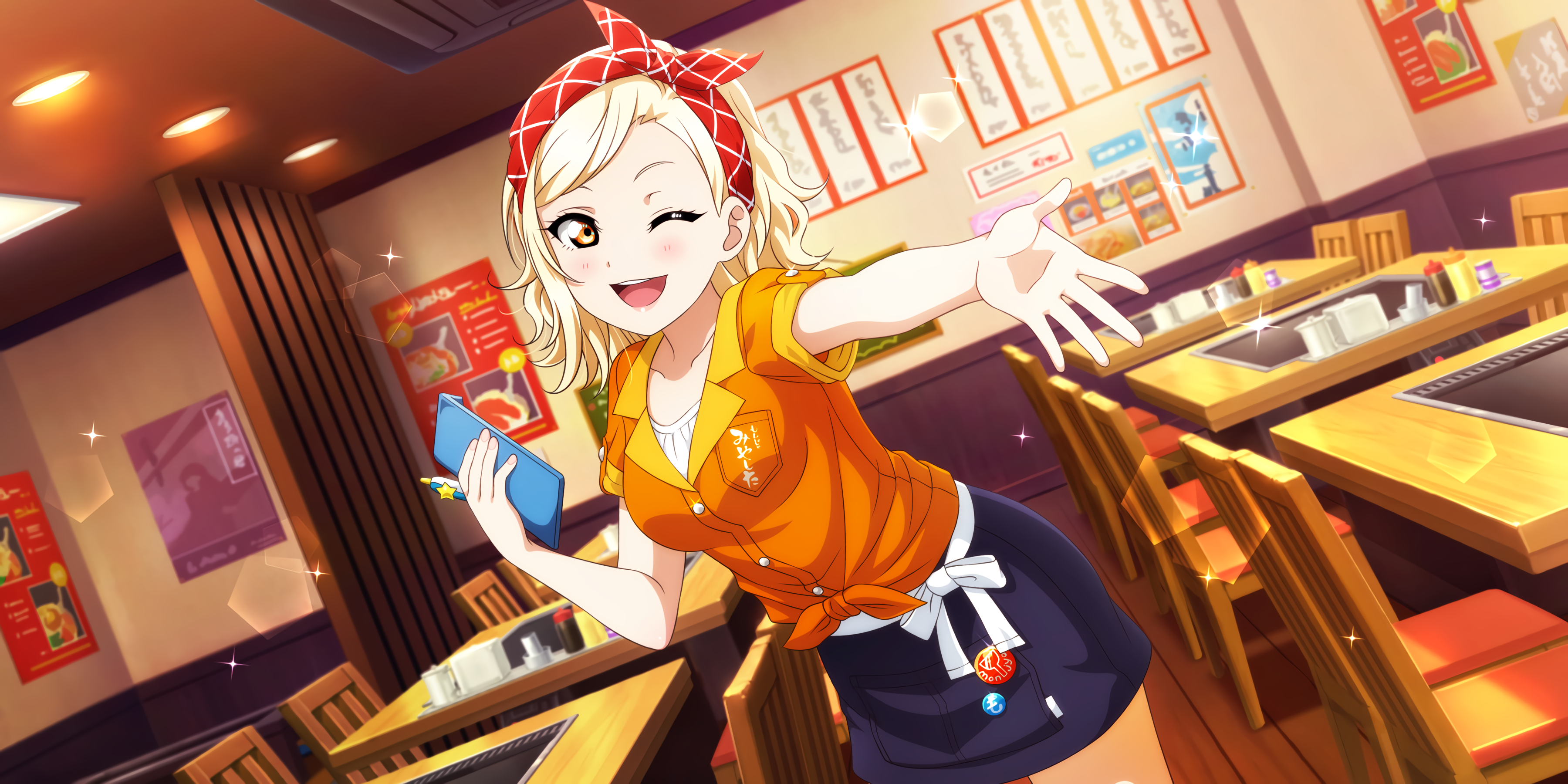
Emma's arc painted her in a manner that no one saw coming. While it was established she was a Swiss transfer student who came to Japan to try to become a school idol, the anime reveals that it was really Karin who helped her achieve that dream, painting both characters in a manner that both the games and previous knowledge never has before. Her insert song reflects her gratitude and grace, while still maintaining the Swiss folk melodies that was present in her original live Evergreen. Rest assured the trend of the Foreign Student lives on in her blood.
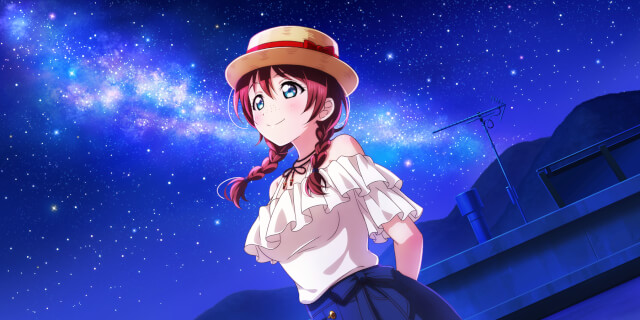
Rina's arc quickly captured the hearts of many, including mine, and made her indisputably one of the characters with the most fleshed-out arcs of the entire series, revolving around her inability to express emotions through her face, we follow her as she tries desperately to fit in while also despairing at her lack of emotions. Her insert song's lyrics suggest that while it's not perfect, its the best she can do so far and she wishes to keep on connecting until she can truly smile without her board.
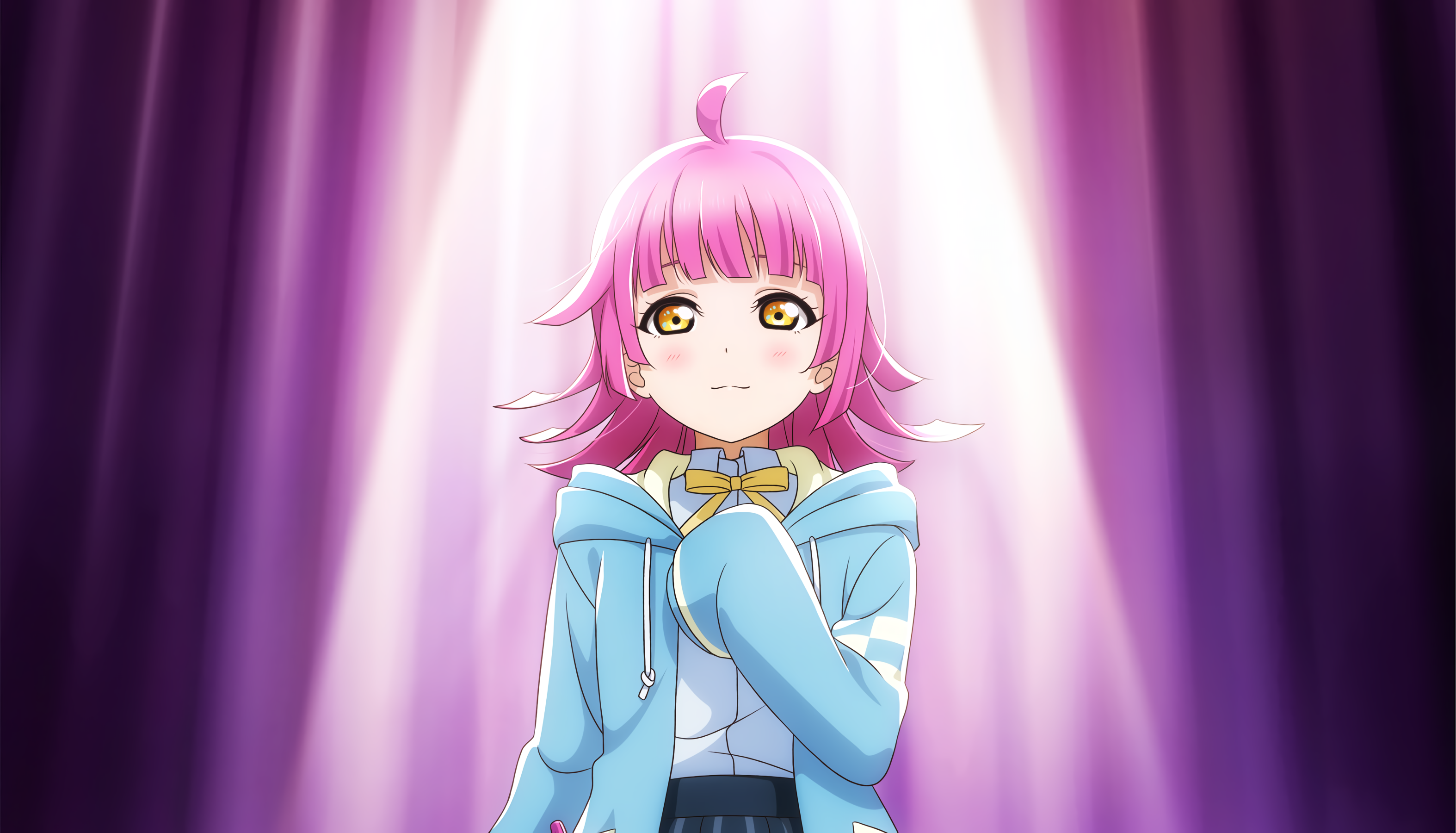
Kanata's arc, like some of the other arcs mentioned so far, had many of us on our heels. It was known that Kanata's signature quirk was her tendency to sleep. The anime not only provided us an explanation for her quirk, but also shaped it into an immersive character arc that left many fans seeing Kanata in a completely new light. Thank you Haruka, you've made your big sister proud.

Shizuku's arc raised her status within the community's perception of the school idols. Many people thought that she was often extremely flat since her entire personality revolves her being a literal drama queen and nothing else. However, the anime adds a layer of complexity to her passion, painting her reluctance to perform due to stage fright as a split persona, and as a musician, I related to her so much. It's no secret that public performance, whether it be public speaking or a public display of talent has been ranked more feared than death, and seeing Shizuku overpower a force that once held me back is not only resolving but also strengthened her persona to the point in which many members of the Love Live fandom instantly respected her after her arc.

Last but not least, we have fashionista Karin. Often painted for her picture of perfection (literally since she's a model). In the games she was indeed a seemingly perfect person, with no evidence of flaws, otherwise an inhuman being. But the anime decided to give her flaws, drawing her persona more down-to-earth. Painting the conflict that rises between your outer and inner self. Now she's not only revered for her over 9000 Ara Ara vibes, but also her uncanny inability to navigate.

Dear god she reminds me of Leon from Pokemon so much
Music and Art
Love Live once again outdid themselves in this category. Each and every insert song was so vibrant in color and sound that it was a spectacular outburst of passion. While the actual art style feels like it simplified since Sunshine, it was painted with much more vibrant colors, once again reinforcing the fact that Nijigasaki sings in all the colors of a rainbow. As for the music itself, it has certainly become a lot more immersive. Each insert song attuned to the character's individual personalities. Smooth and melodic for Ayumu, Swing and upbeat for Kasumi, Intense and fiery for Setsuna, A Blast of Electric guitars for Ai, Traditional Swiss for Emma, Electronic for Rina, Sleepy and Soothing for Kanata, Orchestral for Shizuku, and Techno and beat-heavy for Karin. Each insert song played a key role in establishing each Idol's individuality and did so expertly
Overall, this Love Live has to be the best iteration I've seen so far, its plot is lined with detail and its originality is through the roof, each character received substantial development compared to its predecessor and I can't wait for Shioriko's inevitable entry into the series.

FestivalsOfComf
85/100A breath of fresh air into the Love Live anime adaptations. Bold, exciting, and familiar but sometimes inconsistent.Continue on AniListSetting expectations:
-
This review is being written under a subjective lens and mainly for enjoyment. If you come to expect opinions from a very critical sense, sorry, but I’m not your guy as we may have different tastes.
-
The number of spoilers will be as minimal as possible to none. There are some image spoilers but it's all out of context.
-
I’ll try my best to explain what are the things that worked for me and what doesn’t in this review. Hopefully this will help you understand my point of view and let you come to your own conclusion about what this anime might be like for you.
I preface because a lot of people online come to expect reviews to fit a mold of what they want which isn’t always realistic. For me, I just like to talk about anime I enjoy. And so this review is about such things. Sorry if this ain't what you're looking for.

Verdict
This is where I summarize the entire review for you.
Love Live Nijigasaki (abbreviated to LLN in this review) is a 13 episode TV anime series released in Fall 2020. It was animated by Studio Sunrise (Gundam, Code Geass, all previous Love Lives) and directed by Tomoyuki Kawamura (Mitsuboshi Colors, PV for Muteki-kyuu*Believer and Mirai Harmony).
The anime’s source material is from multimedia (the SIFAS mobile game and other properties). This series can be described as a musical slice of life. If you’ve had previous experience with slice of life in general, you know that a lot of these stories tend to be episodic in nature with some mini overarching stories if they want it. It should be a given that you’ll expect some stories to wrap up in the episode you’re watching itself. Also, considering Love Live likes to treat its music sequences like musicals, it requires a suspension of disbelief regarding the logic of how these musical sequences play out.
If I had to think of one unique thing about this show, it’s the insert-songs. They were very unique and fire which can be a testament to the creators.
Having seen all of the Love Live anime and having a general good opinion of them. It’s possible to come into this show without having seen any of them which is a huge plus as it’s a lower barrier to entry. It’s a refreshing story for Love Live and they implement a similar plot structure like previous Love Live anime series. Also, they have done a great job in the characterization department which helps with cheering on a new group of characters.
For the visuals, it starts off incredibly strong that looks above-average for the beginning and ending episodes of the series, in-between the visuals look average to what you see in typical anime. The Music PVs (Previews) have their varying quality but I think overall it’s all well-done with some standing out as above-average. Regarding the usage of CGI, they have blended the 2D animation seamlessly with it like in Love Live Sunshine, there’s nothing that looks out of place. As for the animation, it feels like above-average in general for the whole show. While it has its powerpoint slide moments, it doesn’t feel littered with a lot of them.
For the audio department, the show offers stellar insert-songs from a large variety of composers and arrangers such as TeddyLoid and DECO*27. In comparison to previous entries, the insert songs stand up alongside their peers, in my opinion. As for the show’s audio and OST, they’ve been serviceable. While the Anime’s OP and ED fit the bill for what the show requires. When looking at the Seiyuu’s (Voice Actor) performances, some are serviceable while some were able to stand-out like Rina’s Seiyuu.
Overall, I’ve had no regrets watching this show while it was airing and I’m glad I gave it the chance. I would definitely give it a rewatch in the near future.
-
For people who have consumed Love Live before, I recommend this new entry! It was well-done and I think you’ll enjoy the ride.
-
For those who haven’t consumed idol anime before, I think I can recommend this as a gateway for what the appeal is like. It’s easy to consume and presents what I think Love Live at its best - the music and performances.
Would you like it? It’ll depend on your preferences in respect to slice of life story elements, music, and drama. I think the slice of life and music elements are very strong and if that’s something that appeals to you, try this out. The drama can vary in terms of quality for this season in particular and that’s not what I would recommend looking for.
On my personal rating scale for anime, I would give this an 8.5/10 which is between this being great and loving it. If you want to see more details about this scale, read the next section below. If you want to read the full review, read the rest of this review.

Explaining my Rating Scale
I think the common mistake with ratings is that we all tend to judge and associate each review rating on our own personal scale. When people see an average anime - they see that as a 5, some see that as a 6, and others as a 7. As you all know, we all have different tastes hence different rating scales and this is why I’ll post my scale below.
My Personal Rating Scale (Anime):
4 and below = I would've dropped this show already but made myself suffer through it for some reason. Regardless, this is the drop zone generally.
5 = This was really meh and I wouldn't take the time to rewatch.
6 = This was meh and I wouldn't watch it again unless I was forced to.
7 = It was okay and acceptable, it was good entertainment and I enjoyed the ride.
8 = This was a great story and I enjoyed the show/movie but it wasn't considered one of the best experiences. Just a great time overall!
9 = If I watched this show/movie for the first time, I'll love this a lot. It ain't life-changing but god damn I'll have one of the best experiences.
10 = This show resonated with me so hard - chills and intense emotional catharsis.
Background
I feel like it’s important to display my biases. I’m a fan of Love Live and I’ve seen all of the Love Live anime:
- Love Live School Idol Project (LLSIP) S1, S2, and Movie.
My general opinion of LLSIP is that it had a janky S1 but it got better in S2 and had a great finish in the movie.
- Love Live Sunshine (LLS) S1, S2, and Movie.
My general opinion of LLS is that it had a really strong S1, the S2 was weak at some parts with a great conclusion, and the movie was good entertainment.
Overall, my general opinion of Love Live is that it’s silly good fun for the most part but it has some real good moments when it wants to. This can be said for some idol shows I consumed like Idolmaster.
Your question could be, do I need to have seen LLSIP and LLS to watch this show? No. It isn’t required and I think that helps this show out a lot because it allows an easier barrier to entry into this franchise for newcomers to get a glimpse of why this franchise resonates with people.
I watched this show while it was airing through official subtitles in Japanese audio and English subtitles.

The Review
Now the review. I’ll be talking about the anime in the following categories:
1) Story / Plot / Characters
*[Evaluation of Story]* Holy shit, the story is refreshing for Love Live.
My biggest worry with this new anime’s story was that it would try to literally repeat LL SIP and LLS story-beats wise. Let me squash those worries away and say that the story presented is completely new in respect to LL SIP and LLS. It does NOT rely on knowledge from those stories/idol groups to appreciate and enjoy this show. LLN can be entered whether or not you know about Love Live’s previous anime and that’s a big win. If you started with LLN and want more, go experience those other stories.
Despite the story being new, that doesn’t mean this was completely innovative of the idol genre. I think this story is innovative within the Love Live franchise itself in respect to how they approached their characters and stories. There is a lot more focus on characterization and you feel like there’s a lot more personality shine through from the writing.
For being new, does this mean that LLN lost the unique qualities from previous stories? Naw, we see the silly comedy gags that make up the identity of Love Live present throughout. The songs are also taking the page from LLS in respect to presenting a variety of musical genres instead of the generic JPop that was present in LL SIP. LLN is able to take the good qualities from both LL SIP and LLS while adding its own spin to it with new ideas.
Like in the previous Love Live stories, there must be a suspension of disbelief in respect to the musical sequences. During those sequences, I treat them as musical videos or musical pieces in the show. When you watch a musical, they require a suspension of disbelief in regards to the logic of the stages. This requirement comes back again for the very unique stages that are brought on for LLN.
*[Evaluation of Plot Structure]* In Season 1, it’s episodic with a focus on one character at a time while weaving subplots around in the background. It’s nothing new if you’ve watched episodic anime before.
If you know the formula from LL SIP and LLS, you know that Season 1 is all introduction of the characters and laying the foundation of its world while exploring some stories here and there. Expect to see this again for LLN Season 1. It’s very possible for a Season 2 and for that season to dive deeper regarding the dynamics between all of the characters like in previous franchises.
*[Evaluation of Characters]* Wow wow wow. These characters feel really unique than the standard tropes seen in the previous Love Lives. Well… you can see they took similar elements from previous group characters but they did a proper job mish-mashing some of these elements in these new characters than their previous efforts with Aqours making what looked like clones from Muse. It’s honestly refreshing to see there’s a lot more focus on characterization and how they overcome their tribulations.
If I had to compare characterization, it feels like they took the page out of idolmaster in respect to implementing genuinely unique qualities of their character. The depth of character isn’t exactly deeper than more well-crafted characters in anime but for Love Live’s standards, it definitely feels deeper which is a win and something any Love Live fan will enjoy.
Also, I need to address the main character - Yuu. She’s an idol fan self-insert. It’s very clear from the get-go based on how her character plays out. Thankfully, she starts to form a character as the show goes on but she definitely felt like a huge blank slate and that bothered me for a bit considering the characterization of the other characters being quite stronger. This aspect isn’t a huge big deterrent but for those critical, you can definitely notice it quite quickly.

2) Visuals / Animation
*[Evaluation of Visual Art]* Before I start, I need to mention that when I mention bad visual art, Love Live has had a history of it and it generally gets meme’d because it looks funny. Also, some of this is present in the show. However, when I reference bad visual art in this review, some of these aren’t memeable but more of just really bad shots, in my opinion.
Overall, the visuals can look inconsistent between certain episodes. In one episode, it can look downright gorgeous to the point where I think to myself that I’m actually watching a Love Live anime. It can look so good that I think it’s possibly the best Love Live can ever look visually on-screen in comparison to previous entries. In another episode, it looks like a generic episode of Love Live in previous entries or any generic episode of anime in general.
This inconsistency will set high expectations for those who enjoy gorgeous visuals like me. For me, I adjusted my expectations as the show was airing by bringing it down but for those binging, you need to be warned that the visuals can vary depending on the episode. For such a huge inconsistency, I termed the great episodes as developed by the A-Team and the other episodes developed by the B-Team. As you could guess, the A-Team is brought on for critical episodes (the beginning and end) and the B-Team handles the rest.
Do NOT set your visual expectations based on A-Team’s quality, this will hurt your enjoyment through the rest of the run. Once you see B-Team’s quality, set your expectations there and you’ll have a more enjoyable time looking at the visuals.
An important question to be asked is if this visual inconsistency also includes the music video previews (PVs) during the show’s run. I would say that thankfully the music PVs do NOT have that huge inconsistency in respect to the episode’s visual quality. In my opinion, they are high quality for most of them but some of them do fall flat. By that point though, it’s all subjective. Regardless, I think it can be agreed that the music PVs are very well-done in general.
Also, like in Love Live Sunshine, Sunrise was able to bring in their A-game for the CGI department and was able to successfully blend 2D and CGI seamlessly. There have been 0 complaints regarding how the CGI looks, it may look out of place in certain moments but it doesn’t look like a huge eye soar.
*[Evaluation of Animation]* I do appreciate the extra effort placed into animating the character’s movements. You can see characters constantly moving in certain episodes and it’s not a constant powerpoint slide. There’s a real feeling of movement and I don’t recall anything looking out of place. Overall, it’s definitely above-average and what you can expect from animation relative to Love Live Sunshine.

3) Audio / Soundtrack / Voice Acting
This is a very subjective section based on a person-by-person’s taste.
*[Evaluation of Show’s Audio]* I personally found it to be quite serviceable from general anime entertainment. There has been good usage of diegetic and non-diegetic sounds for many scenes. Overall, it was good and I don’t recall anything bad standing out.
*[Evaluation of OP & ED]* I really like the OP, it has a lot of excitement and shows the potential of the group all singing together, this fits the anime opening credits vibe. Also, I enjoyed how the ED was slower-paced as the way to close the anime episode out, this fits the anime ending credits vibe.
*[Evaluation of OST & Insert-Songs]* There has been a lot of similar usage of soundtracks throughout the show and this was from me watching this show on a weekly basis. I would hope they would use more variety of soundtracks but if the limited selection means it’s quality, I’ll take that. To be honest, it seemed like they focused more on the insert-songs anyways.
The insert-songs are fire and so good that I loop them a lot. They’re all unique and produced by a large variety of composers and arrangers such as TeddyLoid and DECO*27. This creates that very unique feel of each insert-song per character. I believe these insert songs are one of the best that Love Live has to offer in the series entry and I’m really happy to see them not fail in this department in respect to their peers in previous entries.
My favourite insert songs are Butterfly, Vivid World, and Dive.
*[Evaluation of VA]* Some Seiyuus (Voice Actors) have really shined in this show like Rina’s Seiyuu and others put in a serviceable job for their characters which might be in part of the directing and scripting for certain episodes. Regardless, the seiyuus did a good job with what they had.

4) Overall
I’ve spent way too much time writing this review but I can’t help it. There’s a great charm to this series with its memes, music, and performances. It’s why I’ve been able to consume so much of its media at this point. Though it definitely does hurt my critical side of my brain sometimes lol.
For Nijigasaki, I have no regrets watching it while airing. Despite the ups and downs, when it hits its highs, I really feel that. When it hits its lows, I really feel that where I get disappointed and bored lol. Still, as an overall entertainment product, I had fun and would definitely rewatch it in the near future if the opportunity presents itself.
Hopefully, you learned something useful from the review. Thanks for reading. :)

-
SIMILAR ANIMES YOU MAY LIKE
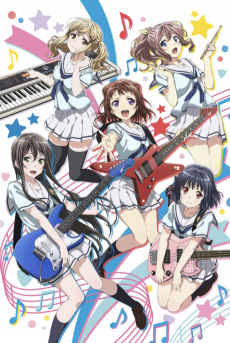 ANIME ComedyBanG Dream!
ANIME ComedyBanG Dream!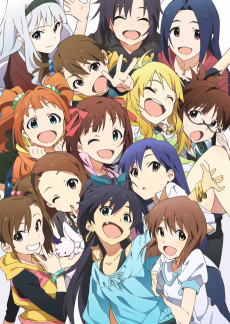 ANIME ComedyTHE IDOLM@STER
ANIME ComedyTHE IDOLM@STER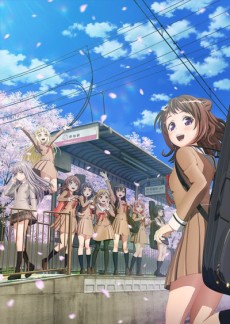 ANIME ComedyBanG Dream! 2nd Season
ANIME ComedyBanG Dream! 2nd Season ANIME ComedyZombie Land Saga
ANIME ComedyZombie Land Saga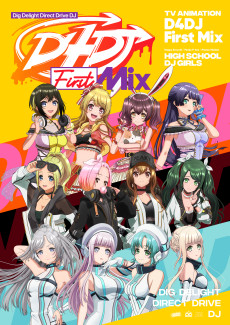 ANIME MusicD4DJ First Mix
ANIME MusicD4DJ First Mix
SCORE
- (3.65/5)
TRAILER
MORE INFO
Ended inDecember 26, 2020
Main Studio Sunrise
Favorited by 863 Users
Hashtag #虹ヶ咲 #LOVELIVE


